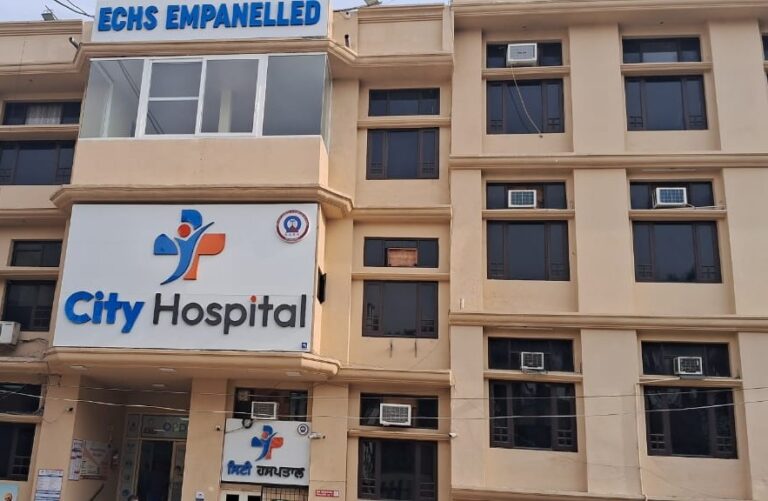Wrist Pain: Common Causes, Management, and When to See a Doctor- Abrol Hospital (A Unit of EMC Hospitals)
In today’s busy and technology-driven lifestyle, wrist pain has become a common yet concerning problem. Prolonged use of mobile phones or computers, repetitive hand movements, sports injuries, heavy lifting, or sudden trauma can put excessive strain on the wrist, leading to pain and swelling. According to Dr. Tanveer Ali, a renowned specialist at Abrol Hospital (A Unit of EMC Hospitals), Gurdaspur, wrist pain is not merely a temporary discomfort—it can sometimes be an early sign of serious underlying conditions.

The main causes of wrist pain include injuries, sprains, arthritis, carpal tunnel syndrome, tendinitis, gout, osteoporosis, and nerve compression. Wrist pain may occur suddenly after a fall or strain, or it can gradually develop over time and persist for months. Early symptoms often include pain, swelling, stiffness, burning sensation, tingling, and weakened grip strength. In some cases, the pain intensifies at night or causes numbness in the fingers, which may indicate carpal tunnel syndrome.
Dr. Ali explains that the initial management of wrist pain involves resting the affected area and avoiding any strain. Applying cold or warm compresses, doing light physiotherapy, using wrist support bands, and taking pain-relief medications in moderation can help alleviate symptoms. People who spend long hours typing or using mobile phones should take regular breaks to stretch their wrists and maintain proper posture.
If the wrist pain does not improve within 7 to 10 days, or if symptoms like swelling, redness, numbness, or a weakened grip occur, it is essential to consult a specialist immediately. Delaying medical care may lead to permanent damage or even the need for surgery later on. Abrol Hospital offers advanced diagnostic facilities, including X-ray, MRI, and ultrasound, to identify the exact cause of wrist pain. Based on the diagnosis, the doctors create personalized treatment plans that may include medication, physiotherapy, injection therapy, or surgical options if necessary.
Dr. Tanveer Ali emphasizes, “Wrist pain should never be ignored, as it can permanently affect the functionality of the hand. With timely diagnosis and appropriate treatment, complete recovery is possible.” Abrol Hospital, Gurdaspur, provides advanced and safe treatment with the support of modern technology and an experienced medical team. The hospital’s mission is to ensure that every individual can perform daily activities without pain or limitations and lead a healthy, active life.




